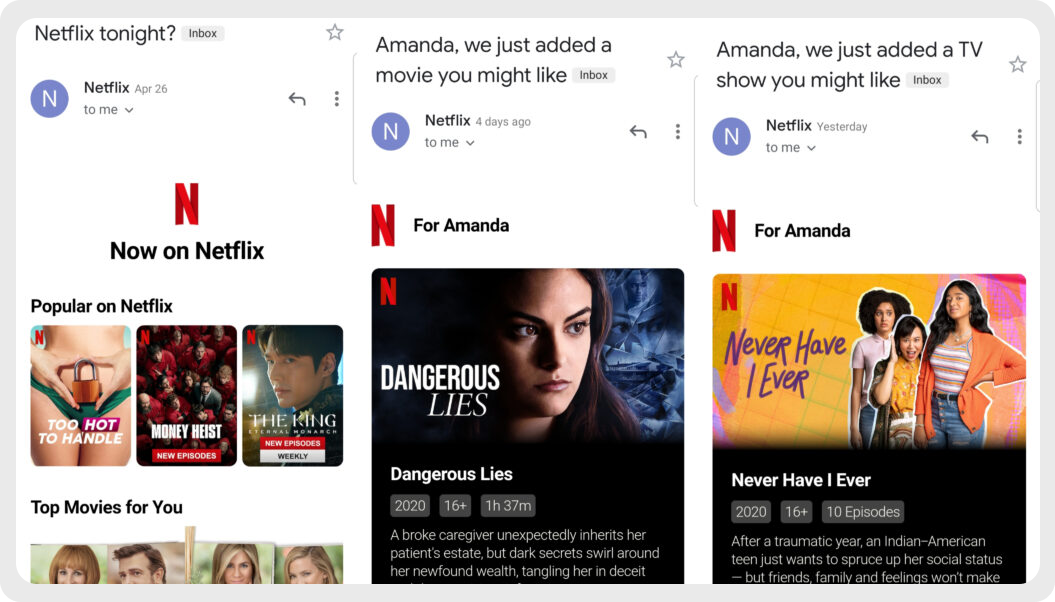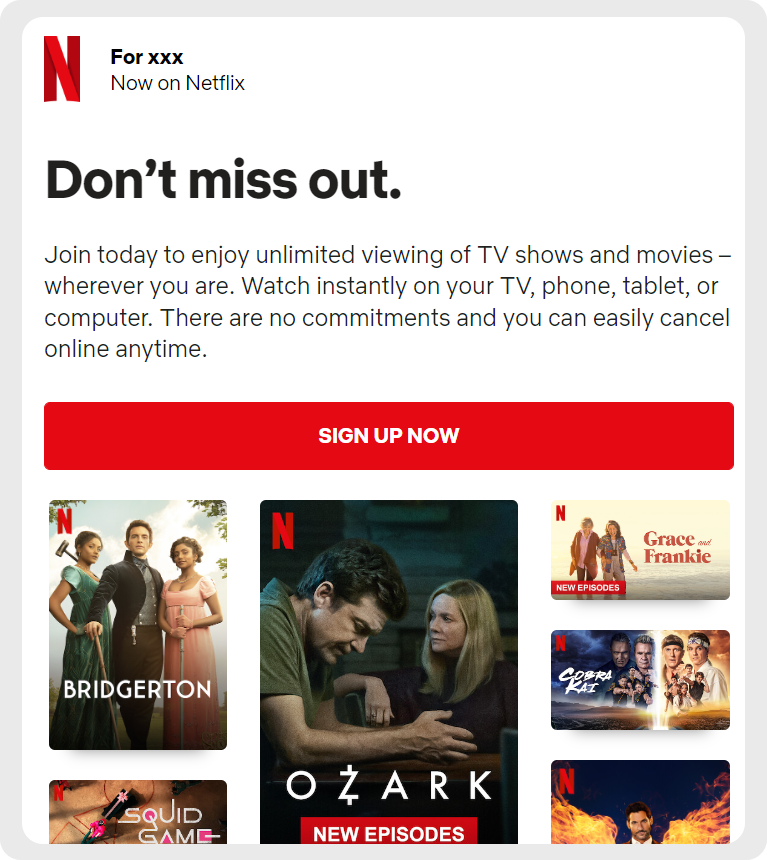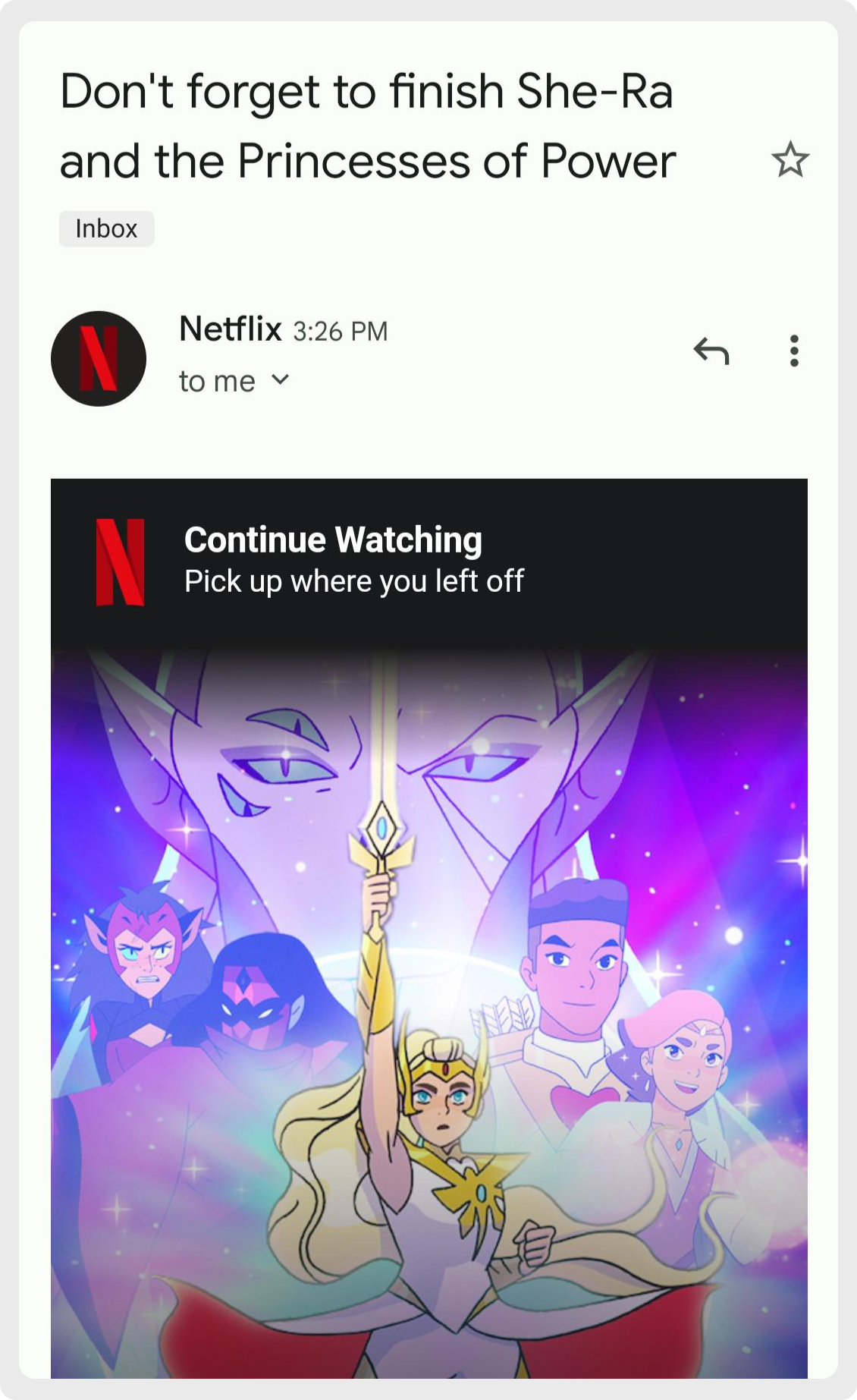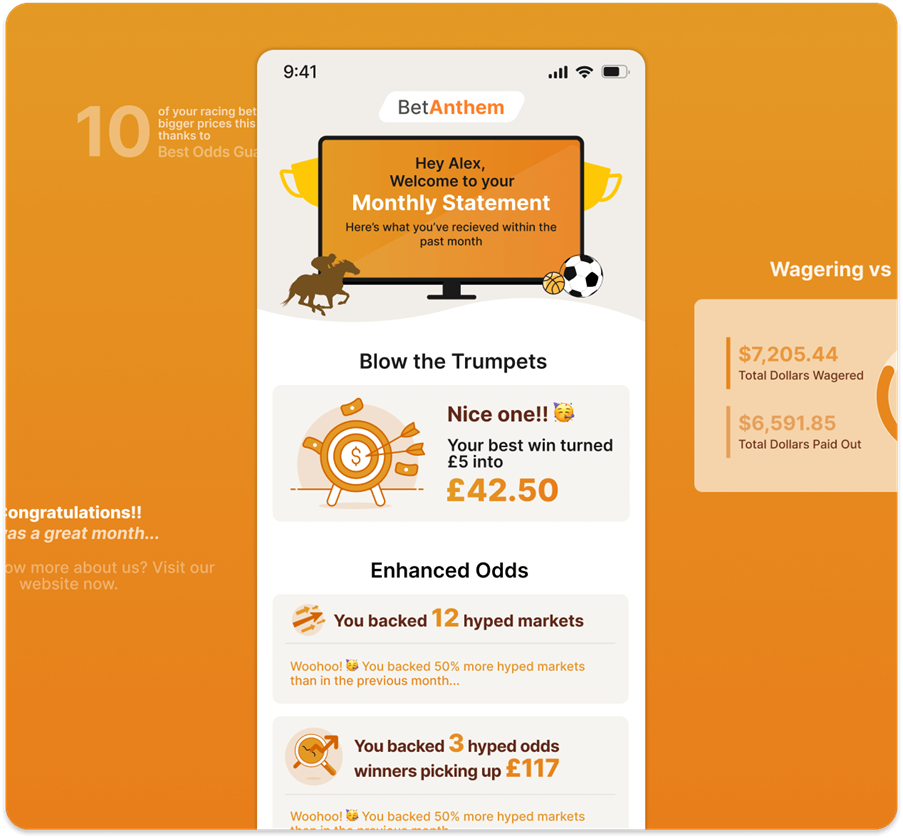Welcome to the third chapter of our new series, From A to I: 9 AI Use Cases to become the Netflix of Casinos. Read the other chapters here.
In this use case, we’ll be diving into how Netflix approaches personalised marketing content through email communications, and discuss what the main takeaways are for casino operators.
Why Netflix?
Read the series intro here and sign up here to receive the new blogs, as soon as they come out.
Here are three key learnings about personalised marketing:
1. Personalised content recommendations
Netflix does everything it can to retain you within its product. Similar to a Vegas casino with no clocks and well-considered scents, they try and keep you within their walled gardens. But what about beyond those gardens?
Netflix are known for creating memorable marketing that carefully utilises their content portfolio to best engage every current and potential subscriber. Quite prominently, this includes email marketing.
But rather than just sending generic recommendations to millions of subscribers, they endeavour to personalise every touchpoint possible. Not just with the inclusion of the recipients <first-name>, but the recommendations they receive, here’s a few examples:
 While the first option seems a little more generic at first glance, the next two represent a far more 1–to–1 approach.
While the first option seems a little more generic at first glance, the next two represent a far more 1–to–1 approach.
This isn’t fully AI enabled; you’ll still often find that Netflix includes some curated content, such as a big show they have launched. However, they understand that by catering to the particular preferences and behaviours of their subscribers, they can make more relevant recommendations that increase conversions.
By increasing engagement they can help turn a weekly active user into a daily active user, unlocking potentially significant ROI.
What casinos can learn
With marketing occupying such a significant cost for operators, anything that can actually prove value, both to the player and monetarily is key.
As can be seen from the Netflix emails above; like casinos, they have enormous quantities of content to organise and recommend accordingly. This is why three key factors must be embraced by casinos:
- Collating/ generating relevant metadata for every piece of content
- Building behavioural profiles for every player
- Combining the above with a recommendation engine that can provide the top x recommendations for x amount of categories, for every player
This form of automation often includes specific rules. When considering the customer lifecycle stage, you might send emails that tend to convert well for new players on day one, by day 30 you should expect something that feels personalised and encourages more diverse viewing.
2. Putting business objectives at the heart
Personalised marketing provides a better user experience, but that cannot be its end goal. Netflix excels by considering key business objectives at the heart of their strategy.
In a previous chapter, we noted how Netflix aligns its practices with its revenue model (read here), and this is equally key to the directive of every customer email — engagement.
With a recurring revenue model, their goal is to keep engagement high, this in turn reduces the likelihood of churn in the long run, reducing the need to re-acquire subscribers.

Like most customer-centric brands, they also look to reactivate churned subscribers, luring them in with targeted content recommendations.

What casinos can learn
While casinos do occupy a different revenue model to Netflix, there are some key learnings to take.
It’s pivotal to approach this with the mindset of long-term, singular-player journeys where every player currently sits in that arc. At each point, different business objectives must be tailored to.
Let’s take an early lifecycle player where the goals would centre around day-to-day retention. To provide a suitably positive experience, you may wish to recommend games with higher average RTPs (Return to player).
This example provides a window into the importance of enabling internal teams to run tests, learn how players respond and track key financial metrics like ARPU (Average Revenue Per User) in test-control environments.
Another example would involve the use of cross-selling, another key factor when considering an entire player journey. Despite there being a financial incentive to encourage sports bettors to play in casinos, this cannot be done in a one-size-fits-all email approach that leads to minimal revenue uplift and potentially a large quantity of unsubscribes.
Alternatively, you may wish to score all players on the propensity to embrace cross-selling, undertaking targeted campaigns for appropriate audiences.
3. Personalised data points
The last topic involves the use of personalised data points — many of us have experienced this type of playback with Spotify’s annual ‘Wrapped’ campaign, displaying your listening activity for the year gone.
Personalised data points seem to have a much more individualised nature than personalised content recommendations. While the latter can be completely tailored to a specific subscriber, the email opener isn’t actually aware of how personalised the email is — the same email could have been sent to many people.
In contrast, individual data points feel like something was designed just for you, it seems to relate to your behaviours and experience.
Netflix utilised this approach in select ways, for example through ‘continue watching’, where it uses watching statistics to remind you to return to a film or series that you have started, but not yet finished.

If this email can also be scheduled to a subscriber's typical viewing schedule it can be incredibly good at converting what has proven to be something enjoyed by the viewer.
As a side note, Netflix also utilises its data points to post some incredibly memorable and engaging social posts:
To the 53 people who've watched A Christmas Prince every day for the past 18 days: Who hurt you?
— Netflix (@netflix) December 11, 2017
What casinos can learn
Of all three of the points above, personalised data seems to be the one where there is the greatest scope for creative communications.
Equally, it is an area that casinos can utilise with relatively little ease while providing incredibly personalised player experiences.
It begins with developing personalised profiles for every player, collecting and generating various data points, such as hours spent betting, through to themes enjoyed or whether a player tends to stick to classic games or be more experimental.
By combining these insights with existing email delivery platforms, such as Movable Ink, CRM teams can create scalable rules and customised emails based on a variety of use cases.

See here an example from Amplifier AI’s Personalised Marketing Data
Examples include a monthly value playback of the bonuses they have enjoyed; or a weekly reminder of how well they performed over the weekend compared to fellow Premier League bettors.
Often technological hurdles in casino platforms prevent 1–to–1 player moments, this can be the quickest way of implementing such.
Learn more about Amplifier AI
To understand how you can offer Netflix-level personalisation and become the Netflix of Casinos, sign up here to receive future updates on this series, and you’ll be emailed on their release.
Attending ICE? Register for our exclusive events or book a demo, and one of our specialists will walk you through the use cases that make the most sense for you.

.png?width=2000&height=540&name=Blog%201%20Banner%20(1).png)